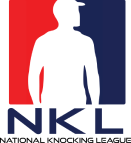Ad 00:06
This episode is brought to you by D2DU, the #1 online sales training platform and the door-to-door and direct sales industry. With over 200 interactive and industry specific videos, learn from the top 1% in the industry how to maximize sales in record time. Indepth training that covers all the skills you need to succeed in your industry. Go to https://d2du.thed2dexperts.com/ to enroll today, if you are in solar roofing alarms or pest control, then d to d u is definitely for you go to https://d2du.thed2dexperts.com/to enroll today.
Sam Taggart 00:47
Hi everyone, it is Sam Taggart with the D2D podcast and those that came to D2DCon, I want to give you guys a big thank you What an amazing event. We have a sales boot camp February 1. And second, we have a business boot camp coming up in February 24 and 25th, March 24 and 25th. So if you haven’t checked out some of our events that are coming up, feel free to reach out we’d love to see you guys there. And today we have a really special guest Steve Patrick, who is literally our industry expert when it comes to working with insurance carriers. And he had 26 years in the kind of contracting world business but 16 years started ago and the public adjusters write adjusting adjust claims adjuster claims adjuster co working for the carrier working for the carrier. So then you started a school to teach these adjusters how to do it right. And then realize there’s a bunch of kind of riffraff going in there. Right? Like it’s like, insurance companies don’t want the adjusters doing the right thing. They want them to do what they’re told. So then he says, All right, let’s go help the consumers let’s let’s let’s push a more holy cause and say, how do we help you know, millions of homeowners get more out of the insurance and avoid some of this whole nonsense with the insurance companies and help the contractors make sure that they know how to supplement the right way correct. And so those that aren’t in roofing, I’m going to explain what supplement means. So if let’s say you get in a car accident, roofing, you know, hail hits your house wind or whatever, explained, yeah, explain kind of what a supplement is, because that was a new term for me when I got into roofing. So what does that?
Steve Patrick 02:22
Say you’re in a car accident, and your body shop says that it’s going to cost 15,000 to fix your car. And the insurance company comes back says no, it can be done for 10. So they send a check for 10,000 minus your deductible. Right? Your deductibles the part that you coming out of pocket, like a copay at the at the drugstore. Alright, so but it’s going to cost 15. So a supplemental claim would be no, you don’t owe me $10,000, you won’t be $15,000. So pay me my $5,000 more that you owe me so I can get the work done correctly. It’s the same thing with a maybe you have a kitchen fire. And it’s a $50,000 fire and they want to pay $35,000. So so a supplemental claim would be I’m claiming the additional $15,000 to do the work right. And to put my kitchen back the way it was before the fire occurred.
Sam Taggart 03:12
That’s cool. So now I know what a supplement is. Let’s kind of talk through obviously, you’ve trained 10s of 1000s of contractors and consumers probably beyond that. What What is like the first step to make to knowing and identifying that you are getting kind of underpaid, you know, because I wouldn’t even know I’m like, oh, okay, it’s $10,000. How do you? How do you know that? You there’s a need for more exactly. Like, does that make sense? Sure.
Steve Patrick 03:41
So this is the deal is as a consumer, you don’t know how much it costs to replace a roof or to redo a kitchen this had a house fire or a bunch of water damage from a water heater that’s flooded the house. And so what you have to do is you have to find a contractor that you can trust that’s actually competent. And that’s, that’s honest, and get a good estimate from them. So you ask around and you find a referral to a from a contractor because the truth is 90% of contractors out there do substandard construction, only about 10% of them do exceptional workmanship, which is what most people want. You know you never bargained for substandard construction when you bought your your policy. But carriers love it. When the 90% of the contractors out there that do substandard construction, come in with a lowball price. You can’t get the good contractor who does exceptional workmanship to work for that paltry price. And so the consumer finds themselves in a squeeze. And because they don’t know how to handle the claim, because how often does a consumer ever have Have a claim. So they don’t even know how claims work. The adjuster has a tremendous advantage over the unsophisticated consumer, because the consumer doesn’t know what’s going on. And the adjuster does this all day long every day. And the consumer can be taken advantage of very easily by these adjusters. And nowadays, back 1520 years ago, the adjusters were allowed to do the right thing nowadays, they’re not even allowed to do the right thing. If they don’t do what they’re told, they’ll be fired. And so you, as a consumer, have to educate yourself so that you have a level playing field and you can make the adjuster do the right thing, by asking the right questions and documenting the loss properly.
Sam Taggart 05:45
So step one would probably be find a good contractor you can trust,
Steve Patrick 05:49
That’s the very first thing you have to do is you find a good contractor who does exceptional workmanship, that’s honest, and that you can trust. Good. So I’m,
Sam Taggart 05:57
I’m a sales rep. And I’m selling for a contractor. How do I know that we do? We’re not part of the 90%? And we’re part of the 10%? Like, what’s the difference?
Steve Patrick 06:08
You asked for references? So you would ask, so give me three clients that you’ve done work for, and call up those clients and say, you know, tell me about Sam, Sam’s working for this XYZ roofing company. Did Sam do what he promised that he would do? Tell me about the workmanship and ask all those kinds of questions so that they can do their due diligence, and actually vet, the contractor and make sure that they’re honest. And they do good workmanship, because the people that have used Sam and his company, they’ll know. And so call those three references and, and check the companies out.
Sam Taggart 06:43
Cool. And so I’m, I’m a company, we’re doing great workmanship, you know, it’s like crap, all these companies that are not doing good workmanship are actually pushing the pricing of carova insurance carriers in a race to the bottom, they’re in a race to the bottom right. And we don’t want to be the company that’s in a race to the bottom. How do we show the insurance company, hey, we’re not on a race to the bottom, we’re really just trying to do the job, right. And we’re trying to do it with good craftsmanship. What’s the way to show the insurance company that
Steve Patrick 07:13
So what the contractor does, is they put together what’s known as a scope of work. So whether it’s a hail or wind damage to a roof, or a fire in the kitchen, or whatever the case may be, this is all the damage property. And these are all the building components that are going to have to be replaced, to properly repair your home or your commercial building. And and then they show all the labor that’s required to do that as well, to put your building back using materials of like kind and quality. So it’s, it’s back the way it was prior to the event, whether it’s a hailstorm or fire or whatever the case may be
Sam Taggart 07:56
cool. So where’s like some good resources? if somebody wanted to go do some more homework? And somebody wanted to be like, Okay, how do I know what line items I need to be putting on the scope? So you know, there’s a lot of different things you can put and sometimes people draw it up, and they’re just like, shingles, gutters. And that’s it. But you’ve got to put all these other little things. Where do where do we find like, what I can put on there? What I can’t what’s being too aggressive, what’s not being aggressive enough?
Steve Patrick 08:26
So the question is, is every single line item on your contractors scope of work, legitimate and reasonable? Or are there line items on the restaurant that are illegitimate, or unreasonable? Yeah. So you just simply as the consumer, all you have to do to say is tell the adjuster, if my contractor is put line items on my on his estimate that are illegitimate or unreasonable? I want to strike those. However, I would like to first hear from you. How did you arrive at the conclusion that those line items are illegitimate or unreasonable? Not just because you say so, or we don’t pay for that? No, no. How did you arrive at your conclusion? That they’re illegitimate, or unreasonable? Because if they are, and you arrived at that conclusion, in a legitimate valid manner, that also that should be stricken, however, if you just don’t want to pay it, and you’re not able to articulate how you arrived at your conclusion that they’re illegitimate, then those one who should remain. So I wrote a book called level the playing field, which you can actually download for free and ebook version of my book, and you could read through there, and I wrote it to educate the consumer. I mean, if you have a claim for 3040 $50,000, and they’re low balling you, 10 or $20,000, is it worth a few hours of your time to read the book to educate you? So that you know what the heck’s going on with your insurance claim. And then you can then ask the proper questions of the adjuster that will compel them to do the right thing, and be able to settle your claim in a righteous manner righteous being what’s right, not a penny more than what they owe, but not a penny less either.
Sam Taggart 10:19
So how do you have that video? What are some good questions? So you’re, you’re meeting with the adjuster and every adjuster is different temperaments, different backgrounds. So what is your best techniques or tips when you’re up there meeting with the adjuster? Maybe when you’re trying to revisit this conversation? Like, give us some kind of best practices?
Steve Patrick 10:41
My favorite question. Of all the questions. Whenever an adjuster makes a statement that you disagree with, or you think that might not be right, then ask this question. What makes you say that? So if they say, you know, we don’t pay for drip edge, or whatever nonsense thing that they happen to say. Then you ask that question, What makes you say that? The beauty of that question, is what you’re really saying is put up or shut up? Hmm. But you’re framing it in a softball manner. So there’s not quite so harsh and offensive. Right? The objective isn’t to frustrate the adjuster. The objective is to get him to realize that you know what, that’s a really good point. I didn’t, I haven’t thought about it in that matter before. So you you owe the person asking the questions is always in control the conversation, most people don’t realize this. When you’re asking questions, you’re in control the conversation. So what you do is, is you don’t make statements. When you’re talking to adjusters, you simply ask questions. Hmm, you question carefully, and you listen carefully to their answers. And depending on what their answer is, that keys up your next question, and you ask question after question after question. In fact, you want to ask so many questions that the adjuster goes, Wow, you really have a lot of questions. You’re a very inquisitive person.
Sam Taggart 12:11
I love that. So let’s say that you have an adjuster that’s just, he’s a hard day. He’s like, don’t get up here. I don’t want to talk to you get away. And that happened to the consumer. No. Okay. So I’m saying to the contract to the contract. Yeah. Which I which Yeah, shifting gears, so contractor a little bit. He’s like they’re ready for the adjuster to get there, which is highly recommended. A lot of companies obviously recommend that the roofing sales guy goes to the adjuster meet. So you’re there to meet with the adjuster? What are some things that the conch like the roofing salesperson can do to help help move this claim forward and get the most out of it?
Steve Patrick 12:51
The most important thing that I teach hands down, the most important thing that I teach is the pre adjustment conference. about two hours before the adjuster is scheduled to be there, you schedule an appointment with the consumer to sit down with them. And to set expectations, because someone’s going to be setting expectations with the consumer, it’s either going to be you the contractor, or it’s going to be the adjuster. So who has an alignment of interest with the consumer the adjuster know their alignment of interest is with the insurance company. The contractor has an alignment of interest with the consumer to make sure that every legitimate and reasonable line item is included in the estimate and paid for appropriately so that the consumer gets a righteous settlement for their claim. Right. And so, in the pre adjustment conference, I wrote an entire chapter about this in my book leveled the playing field in the pre adjustment conference, what you do is, is you explain to the consumer what to expect at the site visit and with their adjustment, and bring them up to speed, not so that the consumer will be on the contractor side, so that the consumer will be on their own side. And we’ll take up for themselves and make sure that the adjuster does the right thing. And then if the adjuster refuses to do the right thing, then it’s simple. The consumer then takes it up the ladder of authority in the Claims Department trying to find someone who can be reasoned with Hmm, if no one if the claims department can be reasoned with everyone’s unreasonable, then what’s happened is the Claims Department has backed a consumer into a corner. Now they have five options. Well, they can do nothing. I guess that would be the sixth option, do nothing. Number one, they can actually go ahead and hire the substandard contractor to do the substandard workmanship that the carrier has written the rest of it for they can do that. They can hire the exceptional contractor to do the exceptional workmanship and they can come out of pocket the difference of their supplemental claim because the insurance company refuses to pay the supplemental claim, they can law your up. They can litigate, they can hire a public adjuster who represents them, which, you know, isn’t litigation. Or they can exercise the they can invoke the appraisal clause, which is buried down in the bowels of the policy that says that you can have an independent panel of experts come out and appraise the value the amount of your claim. And that’s neither public adjuster nor litigation. So those are the six options. The first one being do nothing and used to certainly not choose do nothing. Yeah. So those are the five options, the consumer shouldn’t be put in a position where they have to select any of those options. Yeah, because none of them are good for the consumer. But since this is the real world, and not Nirvana. In the real world, those are the options that the consumer has.
Sam Taggart 15:56
Cool. Now super helpful. This is super helpful. So let’s say I’m a contractor, and I see that the, you know, I see that we’re in this pickle, we’re backed in a corner. Yep. And obviously, I want to go get the most out of this job so that I can give them the best work, right? So I choose the route of like, let’s say, litigation, or public adjuster, and I’m like, hey, let’s go these routes. What’s kind of the process like timelines, you know, what’s happening behind the scenes when they go those routes?
Steve Patrick 16:32
Well, the first thing you have to do as the contractor you have to educate the consumer, what their options are those six options that I just gave you. So you educate the consumer about that. And then you say, Mrs. Jones, let me ask you a question. Your insurance company is shorting you, $10,000. So would you prefer to come out of pocket on the 10,000? Or would you prefer for the insurance company to fulfill their promises to you? You notice how I worded that see, you’re a wordsmith. I really like listening to you. Because the way you articulate things, and you put things in such a manner, it’s very easy for the person listening to be able to make a very good decision, right? Same thing, you don’t say, How can we maximize the claim or anything like that? Because it sounds like you’re trying to milk the insurance company and trying to get some unfair advantage. Rather, what you say is Mrs. Jones, would you prefer to come out of pocket for the 10,000? Or would you prefer for the insurance company to fulfill their promises to you? Now, what do you think the consumer is going to say? Well, I would prefer for the insurance company to to fill fulfill their promises to me, Well, here are the three different ways you can do that Mrs. Jones, you can hire a public adjuster, you can hire an attorney to litigate or you can go to appraisal, and then you as the contractors simply without trying to steer them in any one of the three directions, you simply educate them, the good, the bad, and the ugly, on those three options, and then you allow them to decide what they want to do what’s in their best interest.
Sam Taggart 18:04
Love that. So let’s kind of roleplay I’ll be customer, your your sales rep. You’re educating me on? Okay, here’s the three options, walk me through what that would look like.
Steve Patrick 18:14
Okay, so litigation, you understand what it means to file a lawsuit. So an attorney, you would hire an attorney, and they would represent you, and they stand in your shoes, and they speak on your behalf. The insurance company hires a lawyer, and many times they’re able to bring the claim to resolution and settle the claim without having to actually go to court. Most the time, they can do that. If the insurance company continues to be unreasonable, then they litigate and it goes to court and it’s a lawsuit. And it’s a very effective way and many states the insurance company if the consumer is correct, and they the insurance company should have paid and they win the suit. In many states, the insurance company has to pay the attorneys fees. So make sure if you’re in one of the states that doesn’t pay attorney fees that you know this so that you understand your financial obligation to pay the attorney. The second option would be hire a public adjuster a public adjuster is just like a claims adjuster, only their alignment of interest. They represent the insured the consumer. So you can hire a public adjuster they typically take 10% cut of the entire claim. And and the good public adjusters will get you far more than that. So that not only will you get what, what you need to get the work done, but enough to cover the 10% many times as well, depending on the public adjuster and how they write their estimates and such and the appraisal clause. The way that works is there’s two experts. Usually they’re adjusters or contractors. And if They do this on a regular basis, I’ve done almost 2000 appraisals in 23 years. And so the two appraisers go out first thing they do is they name a tiebreaker guy known as an umpire, and then the to go out and do a site visit, they take a look at the damage, and then they put together their appraisal, which is like an estimate their appraisal of the damage, the two appraisers will then sit down and compare their appraisals to see what remains a dispute between the two of them, and whatever, you know, three 510 line items that are in dispute, they discuss those things and and see if they can bring the the loss to resolution. If they’re able to do that, then they sign the paperwork in the carrier pace. Cool. If they’re not able to do that they involve that third person, the umpire, and then the umpire then brings the appraiser to conclusion. And so that usually costs you know, depending on, you know, it can take a couple months and you know, a small residential loss maybe cost 1000 or $2,000, to do appraisal, or something like that. We’re doing a $29 million appraisal in Houston right now. And it’s probably going to end up costing about $50,000. To handle that, but it’s a $29 million loss. So yeah. So that that particular business owner decided to go to appraisal, rather than litigate or hire a public adjuster. All three are legitimate ways to settle claims.
Sam Taggart 21:24
That’s awesome. No, that’s super helpful. Thank you so much. So let’s say a homeowner sitting there like, wow, this sounds like a lot of work as Do we really need to go this extent, or, like, this just seems like too much.
Steve Patrick 21:37
And so that brings us to the first two options, you can hire a substandard contractor to do substandard work on your house, and they’ll work for the insurance proceeds that they’re trying to get you to sell for, you can always do that, you can get crap work done in your house. And if you want to get crap work done in your house, then knock yourself out
Sam Taggart 21:58
what a good line,
Steve Patrick 21:59
or you can come out of pocket the difference. So let’s say Sam’s company is at 50,000 to do the work, right and the insurance company’s paying 35. So you can come out of pocket the $15,000 to do the work, right? So if you prefer to pay $15,000, rather than making the insurance company fulfill their promise, then knock yourself out. Come out of pocket to 15,000. Go get a loan, whatever you want to do me, I think that the insurance company ought to fulfill their promises. That’s just me. I’m insurance claims adjuster. And so of course, I believe the insurance company should fulfill their promise. But it’s your decision.
Sam Taggart 22:40
So a lot of homeowners, obviously we’ve been trained our whole lives that we’ve got to get three bids, we got to get cheap, we got to get you know the best bang for our buck. That’s just like a buyers conditioning, right? You’re trying to save see who can save the insurance company the most amount of money, boom, such a good line?
Steve Patrick 23:00
Is that what you’re trying to do? Is that what the consumer should be doing trying to see who can save the insurance company the most amount of money? Or should the consumer be tried to make sure that all the work is done with materials of light cannon quality to construction best practices, the 10%, the top 10% of contractors do the work construction best practices, they do exceptional workmanship, the other 90% simply do not. They don’t they don’t care about you, they care about collecting the check. It’s sad, but true. And the contracting industry that 90% don’t care about the consumer, they care about collecting a check. You want to hire someone in the 10% that’s reason why you have to do your due diligence. And you have to vet the contractor through the referral process.
Sam Taggart 23:50
So consumers now stunned with kind of like Wait, what and to help understand this. Either way, the consumer pays what the deductible.
24:01
And then it’s important to you as a contractor, when you’re first visiting with the consumer, instead of saying, all you have to be out of pocket is deductible in any upgrades. You don’t say that? And see that’s what all the contractors say. You don’t say that what you say is provided that the insurance company fulfills their promise to you. All you have to be out of pocket is your deductible. And in the upgrade, Sue helping provided that they fulfill their promise to you and pay correctly. If they don’t fulfill their promise to you, then you might have to be out more money than the deductible and see
Sam Taggart 24:44
love because it’s good.
Steve Patrick 24:46
It’s important that you qualify that provided that the insurance company does the right thing.
Sam Taggart 24:52
Yeah. Because if you don’t, they’re just looking for like how do I get my deductible paid for? How do I get Like free, free free.
Steve Patrick 25:01
And I wrote a chapter on that. Yes. So if you have, so if you as a contractor have a consumer that’s trying to persuade you to violate the law, it’s a class a misdemeanor to eat the vegetables, and eat the deductible, then all you have to do is say, Mrs. Jones, I have a book written by an insurance claims expert. Right? And he wrote a chapter about this, if you would do me a favor and take five minutes and read this chapter, I think you’d find it very enlightening. And so she reads my chapter on eating the deductible. And she goes, Oh, well, I never thought about it this way. Nevermind, I’ll pay my deductible out of pocket. And see now, the contractor isn’t the one saying these things.
Sam Taggart 25:45
You’re using third party like third party documentation
Steve Patrick 25:47
from an insurance claims expert who wrote a book on the subject. So he must be the authority, the subject matter
Sam Taggart 25:54
experts since he wrote a book on it? Yes, using props is huge people articles, book chapters, authority, because nobody trusts the sales guys.
Steve Patrick 26:04
Because you have a financial interest. Of course, you want the price to be high in the consumers mind. Right? So if the consumer reads something from an insurance claims expert, who doesn’t have a financial interest in their claim, they’re going to give that person the authority and the expertise, and they’re going to believe them. Okay, so let’s,
Sam Taggart 26:24
let’s kind of map out, let’s say consumers, like, I’m not going to read your chapter, do you have kind of a bullet pointed? Like, here is the reason? Obviously, it’s breaking the law to pay the deductible? How do you explain that to them without saying, Go read the chapter? What’s another avenue that you can maybe take? So
Steve Patrick 26:41
In our state, I’m in Texas, so what? So you relate it to whatever state you’re in, in the state of Texas, it’s a class a misdemeanor, for a contractor to either deductible. So only criminals, commit criminal acts, people who aren’t criminals don’t do criminal acts. Right? And so if you want to hire a criminal to work on your home, then there’s lots of guys out there that are criminals that will be happy to do that. We’re not criminals, and we don’t commit criminal acts. And if they want to hire criminals, then they’re not your customer. And you move along to find a customer who is
Sam Taggart 27:20
Yeah, yeah, cuz a lot of states, consumers kind of get bad conditioning. And the sub power contractors have conditioned them to say, Oh, well, the last guy ate my deductible, or, hey, there’s almost it’s like lazy, bad sales reps. And that’s what it is, it is laziness, it’s learn good sales techniques, to learn to be a good salesperson and value, the service you’re bringing, is going to help you have more confidence to go into the conversation of not having to eat deductibles. And so if your owner of your company, or, you know, manager is teaching you that, oh, the only way we can sell is by paying people’s deductible, I would say the only thing you should reply is become a better salesperson, learn better techniques, be have more integrity in yourself to literally say I don’t, I don’t need to be bad, I don’t need to go the lazy route, that unethical route, take the high road. And that’s what we’re trying to get at in this in this.
Steve Patrick 28:23
It takes a significant if you’re reading the deductible, it takes a significant percentage of your net profit. And you’re just giving it away. I mean, who wants to take their net profit, which is why you’re doing this is to make a profit, right? Who wants to take away a significant percentage of their net profit and just give it away? And leave that money on the table?
Sam Taggart 28:46
Learn how to sell Yeah, learn how to sell. So now that you’ve convinced customer, you’re like, great, we’re gonna go fight with the insurance to kind of help, obviously get what you were rightfully owed. Is there any touch points along the way that you recommend to do with the consumer to kind of like, let’s say it’s a three month, two month shirt process? What’s this? What’s your follow up like to make sure that it still sticks?
Steve Patrick 29:13
So what you say is, this is Joe’s Let me ask you. So given the choice between the 10% contractors who do exceptional workmanship and the 90%, who do substandard workmanship, which would you prefer? And she’s gonna say, Well, I would prefer this the exceptional workmanship. You’re probably wondering, Mrs. Jones, is there a catch? Yes, there is a catch. And let me tell you what the catch is. The catch is, if you’re going to want the insurance companies to fulfill their promise to you and pay for the exceptional workmanship to construction best practices. Then there’s going to, you’re going to have to make an investment of about an hour of your time. Five minutes here. 10 minutes there. Making the insurance companies fulfill their promise to you? Shouldn’t the insurance companies be fulfilling their promise to you, Mrs. Jones. So I’ll help you word these emails, I’ll give you, I’ll educate you, I’ll give you some training. And so that you can then write the emails that you need to write to make the insurance companies fulfill their promise to you. So the question is this, is it worth an hour of your time to get exceptional workmanship, rather than substandard construction? Make the insurance companies fulfill their promise to you? If the answer to that question is yes, then where you’re contracting? And if the answer to that question is no, then I can introduce you to contractors who do substandard construction, because we don’t do that to people. And there’s your close sale.
Sam Taggart 30:53
Such a good we don’t I do that to people. I was just gonna say I was like, boom, that’s a close, there’s a close, it’s a close, this is a sales. This is a sales training as much as it is a insurance adjuster claims training,
Steve Patrick 31:07
the hard thing is is closing. Yes. You close early, and you close What? Always and often.
Sam Taggart 31:13
Like I’m like, no. So the whole time. So this is this is part of basically not being the needy and being the needed. And that reverse is so important. It’s the pullback of saying, Hey, I’m okay, walking away like it’s, I used to call the folder close. Because I’d be like, oh, it doesn’t seem like you’re really interested in doing the things that we need you to do. So I’m just I’m going to give you a phone number, somebody else and I had shut the takeaway and shut the folder and then start to turn like no. And they realize that you’re willing to walk away from the deal. And it actually creates the close right then in there. So
Steve Patrick 31:53
in fact, you’re qualifying them. Yeah, they’re not, they may be qualifying you to see whether or not they hire you. But you’re qualifying them to see if you want them to be one of your clients. And the answer may be No, they don’t qualify to be one of your clients. And so you do walk away, you don’t want every job. In fact, if you’ve been doing this for any amount of time at all, you know for sure that you don’t want to ever jump, you want the good prospects to become your clients, the ones who actually qualified to be your clients. And that’s who you want to work with.
Sam Taggart 32:26
So they say yes, they sign they’re like I’m in you kind of you I’m assuming you set some kind of timeline expectation, which some
Steve Patrick 32:34
kind, that’s the pre adjustment conference and the pre adjustment conference, you explain how claims work, and you give, and you set expectations for them. Because as a professional contractor, you know, the amount of time that it typically takes, especially depending on the carrier, you could have one carrier that responds in a reasonable manner in you know, very quickly and promptly and you have other guys who they play musical adjusters every two weeks, every three weeks, they they give you another adjuster, and they stretch the thing out for months and months, hoping that the consumer will then just languish in frustration, and then just throw up their hands and discuss and say forget the whole thing and the carrier wins. That’s the reason why setting the expectations in the pre adjustment conference is vital. Because then the insurance the consumer understands what’s going on. It’s interesting because you can you can teach them what adjuster say. And then when they hear the adjuster say those things that the contractor has taught them, they go Yes, my contractor told me you’d say that. Love that. And then what kind of credibility does the contractor have with the consumer now?
Sam Taggart 33:43
So yeah,
Steve Patrick 33:44
because the adjuster saying all these things that that the the contractor had already taught them that the adjuster is going to say, and then the contractor helps them read between the lines and know what the adjuster is actually saying, when they say things like we don’t pay for that. and things of that nature. Love that.
Sam Taggart 34:04
Is there any other tips you’d give a sales rep in this situation where you know, they’re they’re, they’re struggling to understand supplementing struggling understand insurance work? Is there any other tips you’d give them? Study my book? Okay.
Steve Patrick 34:19
The book is specifically written for consumers and contractors to understand the claims process and know step by step word for word exactly what to say and do and what not to say and what not to do. So they can study my book, which they can get for free. And the contractors can join our online forum, where we have 13,000 contractors across the entire United States that come together is an online Band of Brothers and we all help each other out. So you have a contractor that may have a circumstance that they’re in with a particular claims adjuster, and they’re not sure what to do. So they go on the forum, and they ask all the different contractors and public adjusters and plaintiff attorneys that are on there They asked him the question, and you know, out of 13,000, there’s probably, you know, a few 100 in there that are true experts in their craft. And those experts then come in and they answer those questions. And the contractor is able to then glean the information and be able to sharpen their, their expertise, and be able to, you know, hone their skills and learn how to properly close these claims through the forum for free. I
Sam Taggart 35:30
love that, guys. We’re here obviously, to give you guys as much value Steve has been just full of give my two cents would be if you knew that a couple hour read level, the playing field could literally make you hundreds of 1000s of dollars more per job, why wouldn’t you go spend that time to read it so obviously, in this you we gave you, you know, 3040 minutes of good value, but become the expert in this memorize the one liners, practice the closes the tonalities the the way that you’re going to have, you know, the consumer conversation, to the adjuster conversation to the post adjuster pre adjuster conversations, so that you know that you can have the ultimate chance for success. This is a big portion of especially the roofing and insurance work industry, make sure to go and take this to the next level. And thank you so much for being on this. This is this is super helpful. Yeah.
Steve Patrick 36:26
So if you want a copy of my book for free, text, the word ebook, no hyphen, just Eb Oh, okay. 2214496 5182 you can text the word forum fo r u m, two, the same phone number. And you can join our forum for free. It’s for contractors, public adjusters and plaintiff attorneys. It’s not for consumers. And but the consumer can download the book for free by texting the word ebook to that same phone number 214-496-5182.
Sam Taggart 37:01
And so that way, if you’re with a homeowner and you want to help educate them, you know, get them to go and and take that we’ll put that in the notes as well. So thank you so much. Appreciate it. Thank you, Sam. Appreciate you inviting me now. Thank you.























